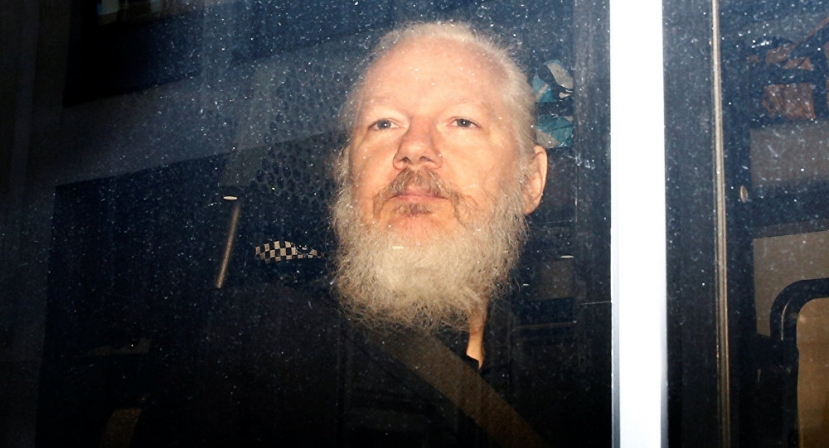Speaking at the UK's Westminster Magistrates court after his arrest, Assange's lawyer stated that the WikiLeaks' founder had a reasonable excuse for breaking UK bail, but added that Assange will not be presenting evidence for that. The judge presiding before the court commented on that by stating that inference may be drawn against Assange if he fails to present evidence.
Still, the UK judge found Assange guilty of breaching bail conditions since he failed to present evidence for a "reasonable excuse" and sentenced the whistleblower to a maximum of 12 months in prison. The judge added that the US must present all necessary documentation regarding the extradition request for Assange by 12 June. The WikiLeaks founder's lawyer later vowed that they would be fighting the extradition request. Assange will remain in custody until his next hearing, which is set to take place on 2 May.
The US Department of Justice has announced charges against WikiLeaks' founder Julian Assange, accusing him of conspiring with Chelsea Manning to commit computer intrusion and steal classified data. He can face up to 5 years in a US prison if he is found guilty.
US prosecutors believe that Manning, who was a US Army intelligence analyst in 2010, gave Assange part of a password that was stored on Department of Defence computers connected to the Secret Internet Protocol Network (SIPRNet), allowing access to classified government documents. The DoJ statement also indicated after receiving the archive with secret US cables and war logs from Manning, Assange urged the former analyst to dig up even more information.
CNN reported, citing anonymous sources, that the Department of Justice would be bringing additional charges against Assange, but didn't specify when they would be presented and what those charges would be. In turn, Reuters reported, citing a DoJ official, that no additional charges will be filed.
WikiLeaks' founder Julian Assange was arrested inside the Ecuadorian Embassy in London on 11 April over breaching bail conditions and a request for extradition from the US. The arrest came after Ecuador withdrew asylum status citing his alleged repeated violations of his stay in the embassy by meddling in the politics of Ecuador's partners.
Following the withdrawal of the asylum, Ecuadorian President Lenin Moreno said that London had assured him that Assange wouldn't be extradited to a country where he could potentially face a death sentence. The same assurance was later reiterated by UK Junior Foreign Minister Alan Duncan.
Assange had been residing in the Ecuadorian Embassy since 2012, after he was released on bail by British authorities. Prior to that, the WikiLeaks founder had been arrested in the UK at Sweden's request, where the whistle-blower was facing rape accusations.
Julian Assange denied the accusations, claiming that they were politically motivated and designed to have him deported to the US, noting that the charges were brought up soon after WikiLeaks released US Afghan and Iraq war logs and State Department cables, taken with the help of Chelsea Manning. The charges were dropped in 2017, but Assange refused to leave the embassy out of fear that he could be arrested for breaching his bail conditions and face extradition to the US.

